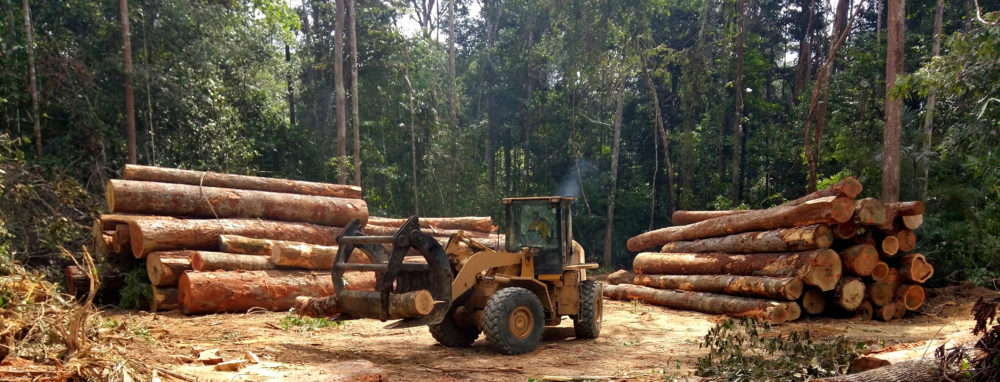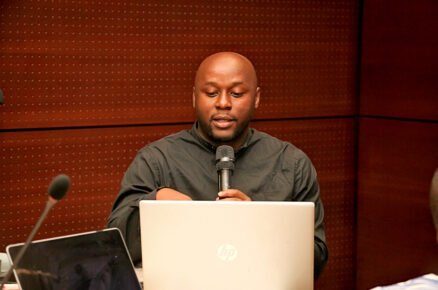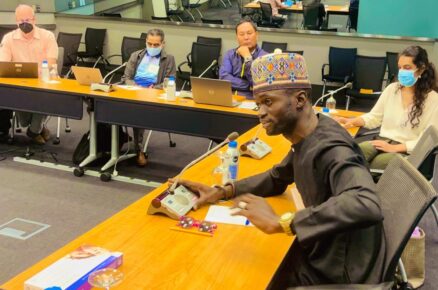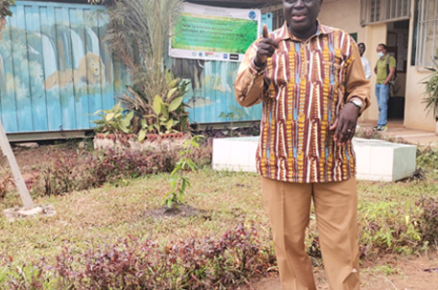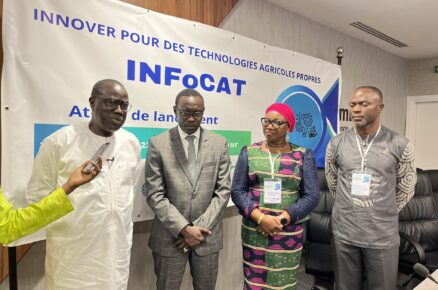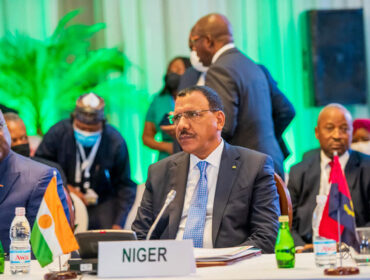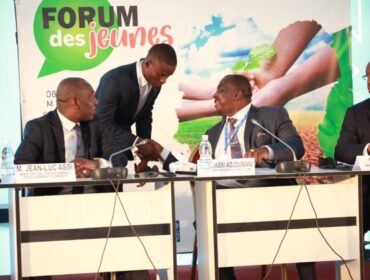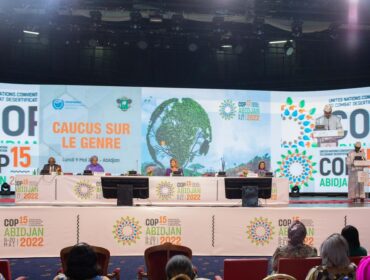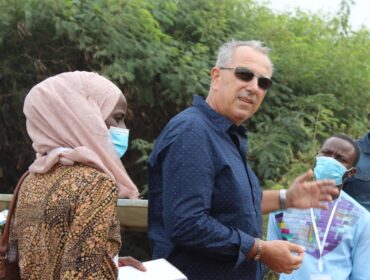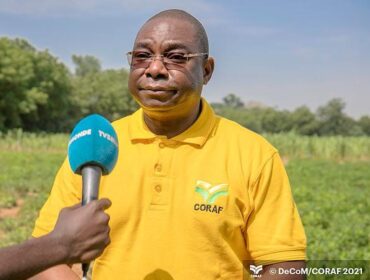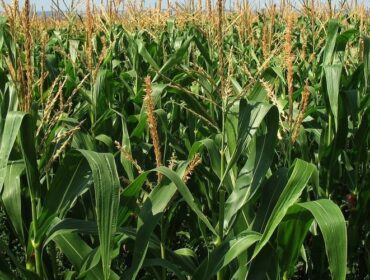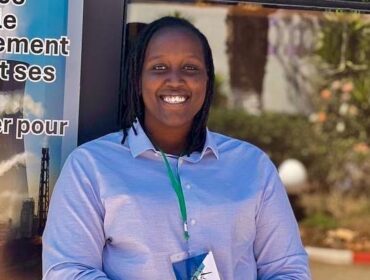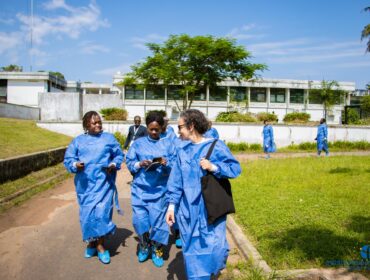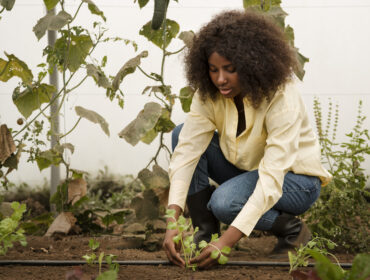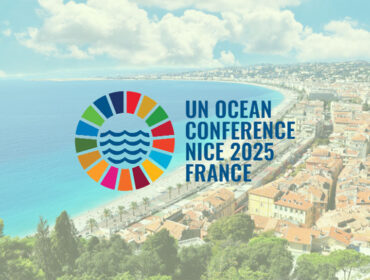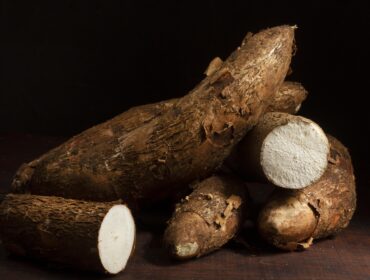The destruction of Ivorian forest cover has intensified over the years. Côte d’Ivoire is among the West African countries with the highest annual rate of deforestation. During the last 60 years, 90% of the Ivorian forest has disappeared due to the daily actions of the population. This is what emerges from the National Forest and Wildlife Inventory (IFFN) presented on 29 June 2021 during a workshop, held in the Ivorian economic capital in the presence of the former Minister of Water and Forests, Alain Richard Donwahi.
According to experts, there will be less than 2 million hectares of forest in 2035 in Côte d’Ivoire and more than at all in the southern part, except for protected areas if we refer to this inventory. Forest cover, estimated at 2.97 million hectares today, or only 9.2% of the national territory, continues to be taken over despite the actions of the government and non-governmental organizations (NGOs) to raise awareness.
Authorities and populations powerless to respond to devastating actions
Several wildlife species are threatened with extinction every day.
The worrying process of deforestation, which has accelerated in recent years in sub-Saharan Africa in general and in Côte d’Ivoire in particular, is linked to human activity. These include bush fires, illegal logging, coal production, illegal occupation of classified forests and reserves, mining and gold mining.
Industrial agriculture for the production of raw materials such as coffee, cocoa, rubber and palm oil, promoted and financed by multinationals, is also devastating.
The Ivorian forest no longer seems to be important to unemployed young people, who make bushfires a profitable activity. During the dry season, bushfires are recurrent in several localities across the country. At this time, they organized hunting parties by setting fire to the bush.
Beyond the animals that perish in hundreds under the wrath of the flames, it is the entire forest cover that is destroyed during the fire under the helpless gaze of community leaders and water and forest agents, committed to the protection of the environment.
« What exactly do forest and water workers do on the ground, apart from spontaneous awareness-raising and tree planting? Don’t they have the power to clamp down to stop bushfires and poaching in our villages? » wonders Konan Ruphim, who helplessly assists water and forest guardians to buy game in Logbakro, in the commune of Yamoussoukro, the administrative and political capital of the country; game from hunting parties (poaching and bushfire).
A civic commitment to effective action against deforestation
The Ivorian government is very active in its initiatives to preserve the forest, although the results are not yet visible in terms of rehabilitation throughout the national territory.
In 2018, the Ivorian State introduced a policy for the preservation, rehabilitation and extension of forests with the objective of restoring by 2030 a rate of 20% of the national forest cover. It envisages the establishment of an autonomous and independent structure responsible for the permanent monitoring of forests and wildlife in order to preserve forest heritage.
Forest and agricultural production are important economic drivers in West Africa. In a growing push toward more sustainable production goals, many global consumer-goods manufacturing multinationals, traders, and even some production companies have made commitments to eliminate deforestation from their global value chains. These commitments cover forest production, palm oil, coffee and cocoa, all produced in West African countries.
For example, in the context of its program on legality in Africa, and assistance to Funding from the Forest Governance, Markets and Climate (FGMC) of the DFID, the Proforest Initiative has set up a research and capacity development program. The aim is to facilitate the discussion on zero deforestation commitments in West Africa. The program targets Côte d’Ivoire, Ghana and Liberia.
Beyond multinationals and traders, non-governmental organizations (NGOs) and civil society organizations (CSOs), contribute to the preservation of forest cover.
The Association Initiatives for Community Development and Forest Conservation (IDEF) initiated a series of activities as part of a project to preserve social cohesion and the inclusive protection of sacred forests in Gbondié and Gandié in the department of Biankouma in the west of the country in September 2020.
This project, entitled « Youth participation in the prevention and management of identity conflicts related to the desecration and exploitation of sacred forests in the department of Biankouma in Côte d’Ivoire », has been realized with the technical and financial support of the United Nations Development Program (UNDP) and the United Nations Peacebuilding Fund, in partnership with the regional direction of water and forests.
According to the initiators, this project involves 200 young people who have benefited from income-generating activities related to forest protection. The beneficiaries took part in reforestation activities to restore the forests destroyed by human actions in the locality. This six-month project trained 20 young people as nurserymen to help restore degraded areas around protected sites.
The REDD+ project plays an important role in preserving and protecting Ivorian forest cover. According to the National Bureau of Technical Study and Development (BNETD), the drastic disappearance of the forest is largely due to the cultivation of cocoa, of which Côte d’Ivoire is the world’s leading producer. To address this situation, the REDD+ project is stepping up its actions on the ground. The Mé region in the south of the country is one of the beneficiaries of the REDD+ project.
The aim of REDD+ in the Mé (PRM) is to reduce greenhouse gas emissions from deforestation and forest degradation in the region of the Mé while improving the living conditions of people living along the shores of these forests. This project led to the creation of the Mabi-Yaya Natural Reserve, the result of intensive lobbying by Nitidæ and the Regional Council of the Mé. The PRM has demonstrated that it is possible to reconcile the reduction of pressure on natural resources and rural development by preserving, renewing and enhancing regional agricultural and forestry capital.
Culture is at the heart of the reconstruction of the Ivorian forest. Artists Zouglou, Yodé and Siro, through their foundation called « YeS Foundation » have signed a partnership agreement with the Society for Forest Development (SODEFOR). On 18 June 2022, this foundation launched its popular reforestation campaign in the forest of Anguédédou just outside Abidjan. More than one hectare of forest has been reforested with 800 plants.
The popular reforestation campaign 2023 will extend to several localities in the country with the support of the First Lady, Dominique Ouattara, President of the Children of Africa Foundation.
The restoration of Ivorian forest cover is everyone’s business. A collective commitment is needed to support the government’s program of planting 300 million trees by 2030 to meet the 20% forest heritage recovery targets.
François M’BRA II

